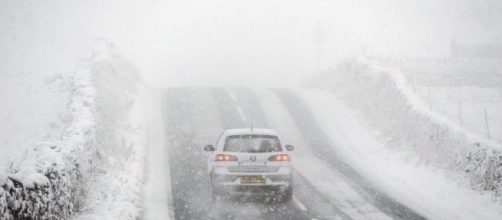Storm Angus is set to reach the coasts from Bournemouth to Dover with winds reaching 80mph overnight. The met office has officially issued an amber warning which means that people should "be prepared" for the first storm of the season. A further yellow warning meaning "be aware" is being issued just after midnight for substantial areas of the south and east of England including London, as it is predicted that winds of up to 55mph and heavy rain could hit those areas. Drivers should be extra cautious of flooding and falling debris from trees, the Met Office said.
Forecasters are also warning of potential localised flooding. Residents are being told to brace themselves for power cuts, travel disruptions and possible destruction to buildings.
First signs of trouble
Met officer Simon Partridge said there could potentially be flooding if drains became obstructed with autumn leaves blown off by high winds. Rainfall of around 1,6 inches is also expected in some areas. Mr. Partridge said it was the first storm this season and that it had come quite late, considering it is already November. He also added that this could be a "shock to the system" for a lot of people, in terms of winds and rainfall. The weakest branches will possibly collapse during the first storm.
Storm Angus is expected to arrive the southwest of England at about 20:00 GMT on Saturday night and move north-eastwards across the coast, reaching East Anglia by Sunday morning.
Bad weather should depart quickly
According to Mr. Partridge, the storm is then expected to depart quickly around midday and head into the North sea, leaving the remainder of the day with dry, sunny spells. Northern areas of England should expect more cold weather, however, the winds will be fairly light and the skies clear. Some areas have already seen a covering of snow such as the high ground in the Pennines, the Peak District, and the Yorkshire Dales. There will also be some light snowfall on lower ground in West Yorkshire. Sheltered parts of Scotland are expected to reach temperatures as cold as minus 10C (14 F) as the night progresses.

